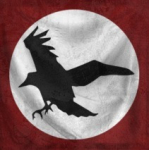@whtknt
I completely disagree with the MMO analogy. It's very telling that they managed to make an MMO out of D&D 3.5 but couldn't do it with 4e. I have yet to have anyone explain to me why it feels like an MMO. I really feel like this criticism found the early internet and exploded for no real reason and WotC was just too slow to pick up on it and explain things. However, the biggest concrete complaints I've heard about 4e (and I'm not claiming to have heard them all) are these:
I don't like the At-Will/Encounter/Daily setup.
Great. So don't uh... play D&D. It's always been there. (AD&D has encounter powers like the samurai's war cry.) It just wasn't explicitly called out until 4e. It's also in 5e, although they've renamed Encounter/Daily to short rest/long rest.
Every class feels the same.
Yes-ish. There was a big push for balance in 4e. Had 3.5 not been
so screwed up that the strongest class choice was simply taking one level of everything, OR playing a caster
(linear fighter, quadratic wizard was a fairly ubiquitous phrase at higher levels, and the Tier 1 classes were Wizard, Cleric, Druid, Archivist, and Artificer, while the magical melee classes like Crusader and Bard were at 3, and the non-magical classes never peeked out of the depths of Tier 4 and lower), and had fighters not been so royally screwed in any game with a GM who was awake, they might not have pushed for balance so hard. At any rate, a lot of what made a certain class fun in 3.5 was the fact that they were over-powered compared to other classes (and the baseline of the game) and when these were brought back in line there was much gnashing of teeth.
Why are we counting sqaures, not feet?
You were always counting squares. Every five feet was a square before and after. What 4e did was remove the rounding math and make moving go by faster.
4e wasn't RP-friendly.
I don't know about you but when I roleplay, I like to be able to roleplay. I don't need 5 charts and 15 paragraphs to tell me why I don't like the orc with the festering pustules on his nose. I'd rather be free to decide exactly how much that bothers (or doesn't bother) my character. I'm kind of glad they dropped all the tables that 3.5 had. No one
really used them anyway.
4e did have it's bad points though. Primary among them were the HP imbalance between PCs and monsters (MM3 - which was an Essentials book - fixed that), The required roles (it was a good idea but cut down on what you could pick to play; if the party already had a Druid, you couldn't be a Psion), and the fact that powers didn't level up very well, often leaving you with a bad choice between keeping a power that
had been good that you liked but that wasn't eally effective as much as it needed to be and a new power that didn't help you at all because you'd built in a different direction.
P.S. If you've been paying attention here, you know why I've mostly switched to 13th Age now.
Last edited July 1, 2022 12:38 am



